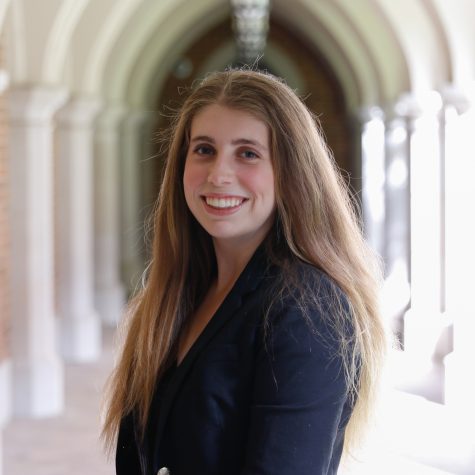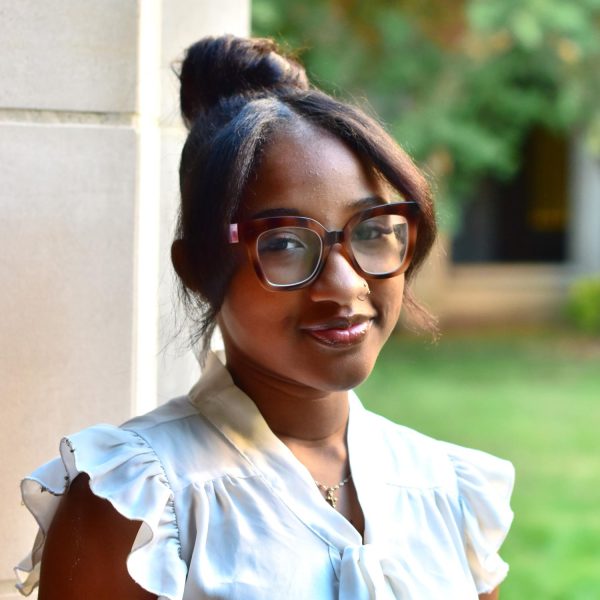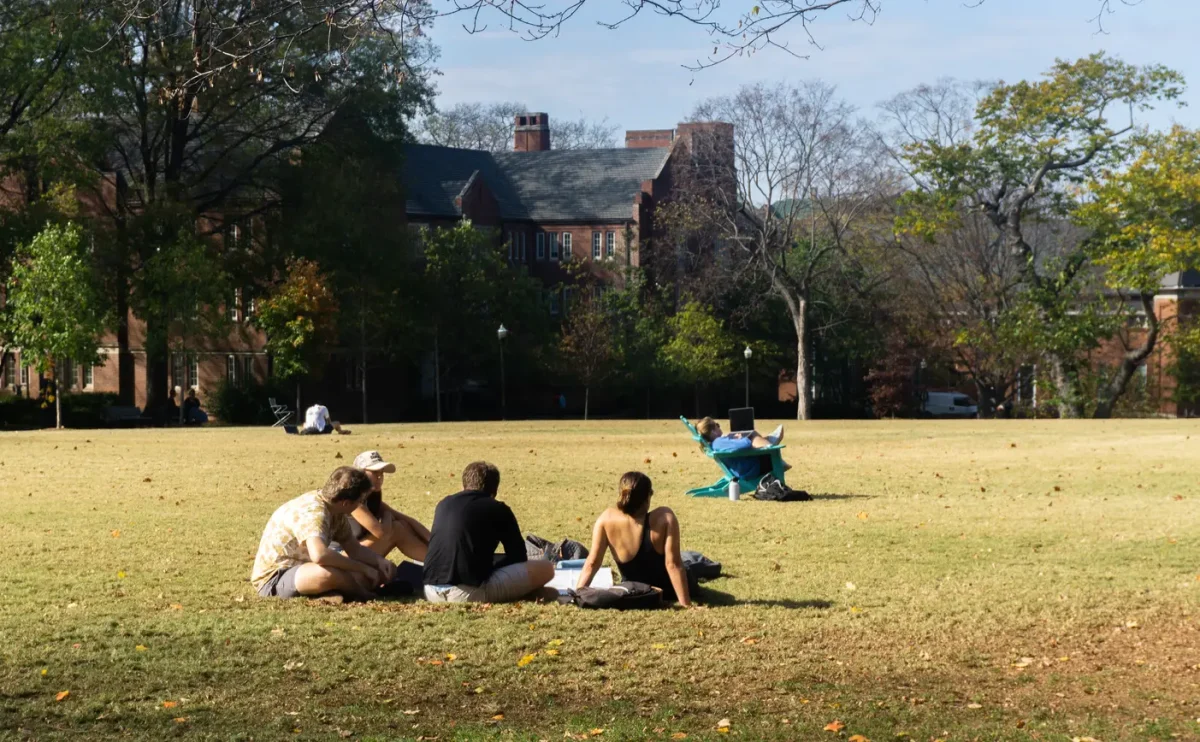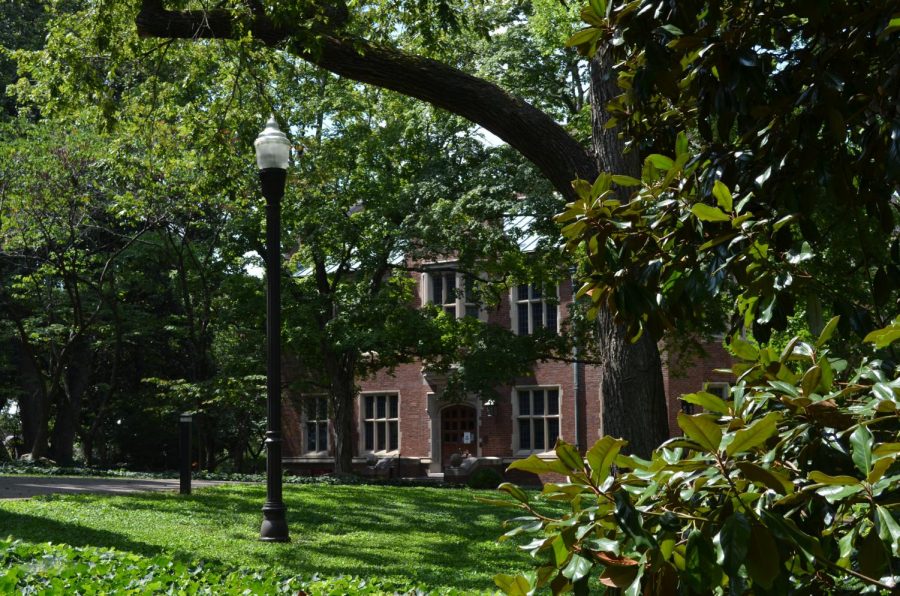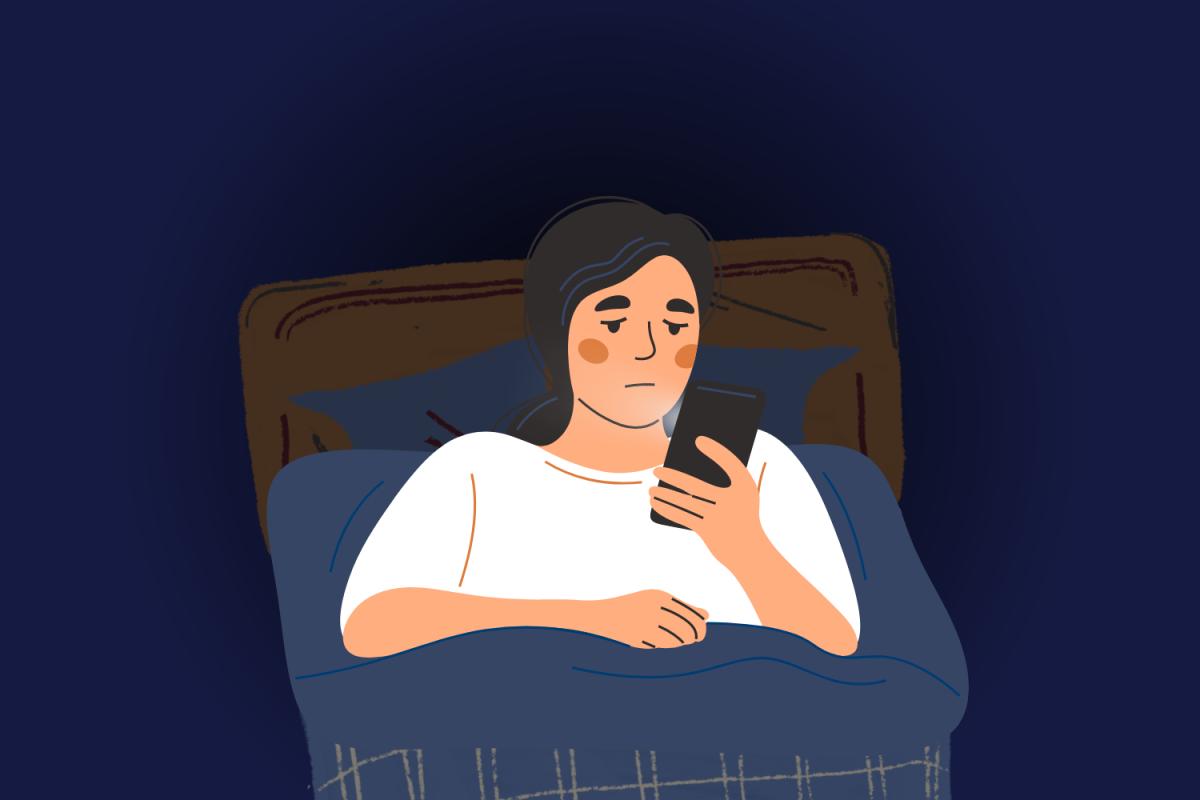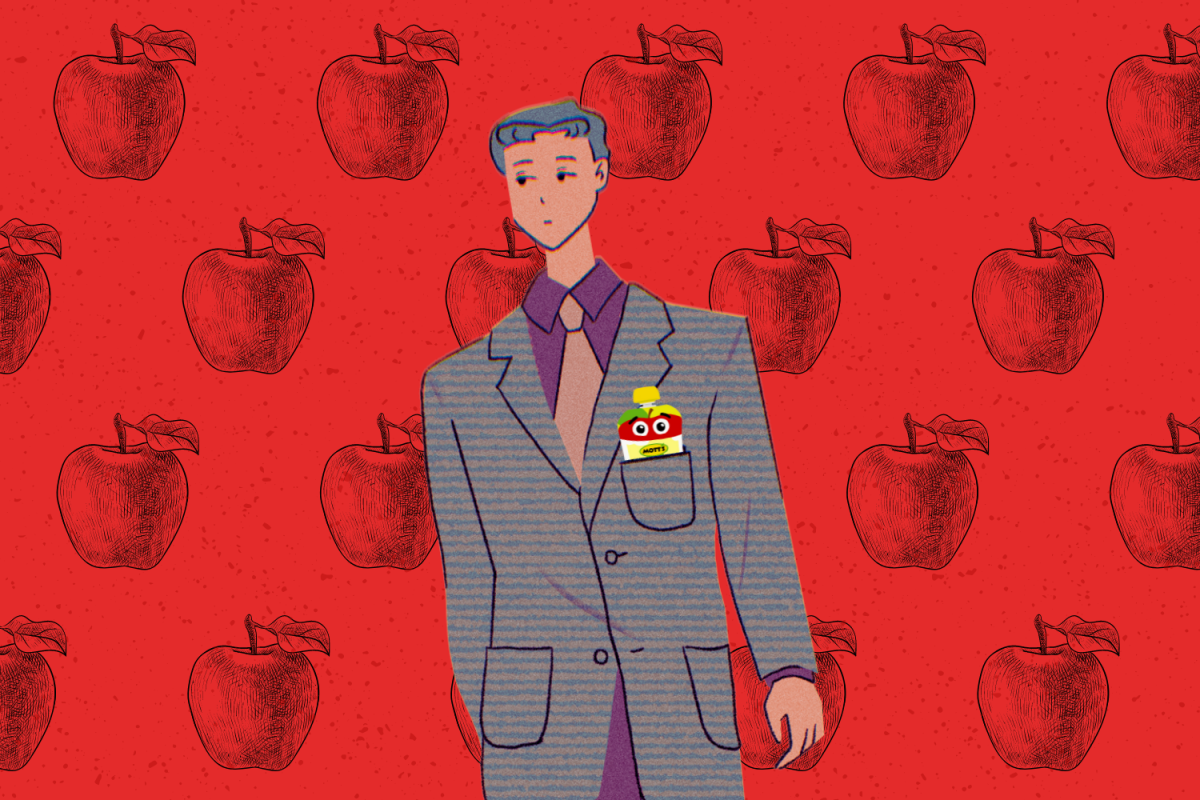I remember vividly the moment I received my Vanderbilt acceptance letter, but I don’t remember the exact day because it was a carbon copy of every other day before and after it. One month into lockdown, I was bored out of my mind, and the fear of life outside my sanitized haven had dissipated into monotony and loneliness. I was sitting cross-legged on my bedroom floor, folding laundry and watching a CinemaSins review of the third Hunger Games movie. I was absentmindedly scrolling through college admissions forums, searching for updates from similarly panicked teenagers, desperate for some reprieve from the fear that, after sacrificing so much in high school, I would not get to update my LinkedIn with a prestigious university name on decision day.
When I received my acceptance, I expected something fundamental in my world to shift. All of this hard work, dedication and sacrifice was supposed to have come together in that one spontaneous moment of joy and relief — a childhood dream finally fulfilled. But it didn’t. The world didn’t shift or flip upside down. No insecurities vanished, and nobody appeared to tell me they were finally proud of me. A YouTube ad kept droning on in the background, my laundry was still unfolded and no seismic shift occurred.
An acceptance letter to a prestigious university, an A on your first chemistry exam, finding your forever people within the first few weeks of school — these are supposed to be the tangible markers of success and happiness. But nobody has everything figured out. Being accepted to Vanderbilt didn’t fix the fact that I hadn’t really learned how to study for a college science exam yet. Coming to Vanderbilt didn’t cure the desperate drive I have to succeed academically, no matter the personal cost. Coming to Vanderbilt didn’t make me feel less afraid of making mistakes and being anything less than extraordinary. Coming to Vanderbilt didn’t make me less homesick, more sure of myself or any less terrified that I would never find a sense of belonging.
I fumbled through the first couple months of college with a clumsiness akin to bumping into a Central bookshelf, causing flurries of books to tumble onto the floor. Hot tears threatened to spill down my cheeks and into my goggles as I overshot my titration again in lab. I woke up at my desk — heart racing — in the middle of the night with the outline of my textbook etched into my cheek. I completed practice problem after practice problem and I wrote paper after paper and I watched the world continue moving too quickly outside my window. Self-doubt, a ghost from my past, held me back. The memorization skills and late-night cramming that carried me through high school faltered. My life didn’t match the day-in-the-life YouTube videos of Vanderbilt students studying complex theorems in fancy buildings with big windows illuminated by sunset glows. I tripped, fell backward and fell apart. Not even a Vanderbilt acceptance could fix it.
Coming to Vanderbilt didn’t make me feel less afraid of making mistakes and being anything less than extraordinary. Coming to Vanderbilt didn’t make me less homesick, more sure of myself or any less terrified that I would never find a sense of belonging.
Throughout my three years here, I’ve come to learn that a prestigious title doesn’t fix everything. The more accolades I won, the more credits I took and the more clubs I joined, I still found my insecurities were never completely alleviated. It never felt like enough. I had the intuition to not compare myself to others but lacked the wisdom to actually restrain myself from doing so. But I’ve also learned that Vanderbilt did not choose me by accident. My acceptance letter was not, as I began to believe after midterm deficiencies were handed out, a mistake made by an overworked employee in the admissions office. Vanderbilt had seen potential in me — and it still does. And slowly, throughout my time here, I saw the potential in myself, too.
It’s okay not to know where you’re heading in life or even where you’re heading later today. Vanderbilt is a place full of decisions that need to be made, choices that have to feel correct and life paths that have to be figured out. Vanderbilt — like many elite institutions — is a contradiction: It is a wondrous place bursting with brilliant, kind minds, yet many find it so very hard to keep going. I’ve learned here that it’s okay to not know, to fall apart and to try and pick yourself back up. It’s okay to be pre-med one day and not pre-med the next day. It’s okay to change your mind about what you want to do and who you want to be. It’s also okay to be confident and self-assured in these things. It’s okay not to have it all figured out right away. It’s okay to miss your Mom.
It’s my turn to graduate this year, and I still don’t know exactly what my life is going to look like after I finish crossing the stage.
I offer a message to the new members of the Class of 2027 and anyone who may be dealing with those feelings of inadequacy: You belong here, and you deserve your place at this school.
Vanderbilt accepted you. This place saw potential in you that you may not fully see in yourself yet. There’s potential in the way you wake up and feel uncertain about your day or your success, but you keep going anyway. There’s potential in the fact that you have already survived every hard thing you’ve faced. There is so much love and light and success ahead of you, even if you can’t see it today. You may not yet have found your place, your people or your things just yet. And that’s okay. I found my people in sophomore year, unexpectedly, in late-night conversations and mutual disdain for night lab. I found my places equally unexpectedly, in the biology classroom, on weekend runs and in the Newsroom. I found my majors by trial and error over the span of three long years. No part of this process will be linear, and sometimes it will feel like you took one tentative step forward and then fell down a flight of stairs. That’s okay, too.
If you left orientation week bruised by the onslaught of “you belong,” you’re not alone. Even as an orientation leader myself, the constant reiteration of the idea made me doubt that it was true if we felt the need to repeat it so much. Mindlessly repeating this cliche ignores legitimate concerns and shifts the onus onto students. We’ve assured you that you belong. If you still don’t think you belong, that’s your problem. I know it’s in good faith, but sometimes the repetition makes it seem like you’ve messed up already if you can’t relate. It’s especially tone-deaf when the messaging seems targeted at the students with the greatest reason to question their belonging — first-generation or low-income students surrounded by wealthier classmates, the lone woman in an engineering class, the Black student surrounded by white peers. These are the students who need sensitive support and not Hallmark-card reassurance.
This place saw potential in you that you may not fully see in yourself yet. There’s potential in the way you wake up and feel uncertain about your day or your success, but you keep going anyway. There’s potential in the fact that you have already survived every hard thing you’ve faced.
It is easy to believe, at a university that educates Nobel Prize laureates, vice presidents and Olympians, that you are an exception to success. It is easy to believe that you should not be here because your parents are not wealthy, you did not attend a fancy prep school or do not come from a long line of Vanderbilt alumni. We tell ourselves that being different means that we are unequal and that we have taken the place of a better, more qualified student. Believe me when I say those feelings fade.
College should also be a place to fall apart, to make so many mistakes, to struggle and to pick yourself back up. It’s unfair to expect yourself to have it figured out after your first week, month or year. Sometimes, you just have to put one foot in front of the other and keep moving. As much as I wish there were a shortcut here, I have yet to find an accurate “how-to” guide for surviving college. The best advice I’ve heard comes from my mom — you are allowed to be both a masterpiece and a work-in-progress at the same time.
Find and join campus communities here. They will soon become your home away from home and fill you with the comfort and belonging you crave. Become a part of organizations that make you feel excited to get up in the morning and do something different. Try ballroom dances, a cappella, student government or maybe try writing for The Hustler. Become part of Vanderbilt’s advocacy scene. We all have causes and issues we care about deeply, and these groups will provide you with a sense of purpose and remind you that there are things more important than yourselves. You might even kill two birds with one stone — involving yourself in student orgs that you’re interested in might direct you to a major, a class, an internship or even a post-grad pursuit. Start conversations with people you meet in line at a dining hall and people who sit next to you in class. Check your admissions file. You may or may not understand what you read, but whatever the outcome, you will realize that out of the 46,000 students who applied from around the world, the admissions office chose you. I promise that knowledge will be liberating.
If I could tell my freshman self one thing, I would let her know that it does get easier and it will all turn out okay soon. You, too, will be okay, I promise. I am already so proud of everything you are and everything you will accomplish here.





